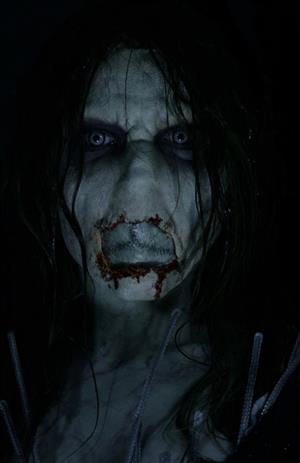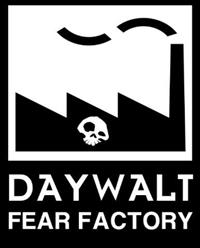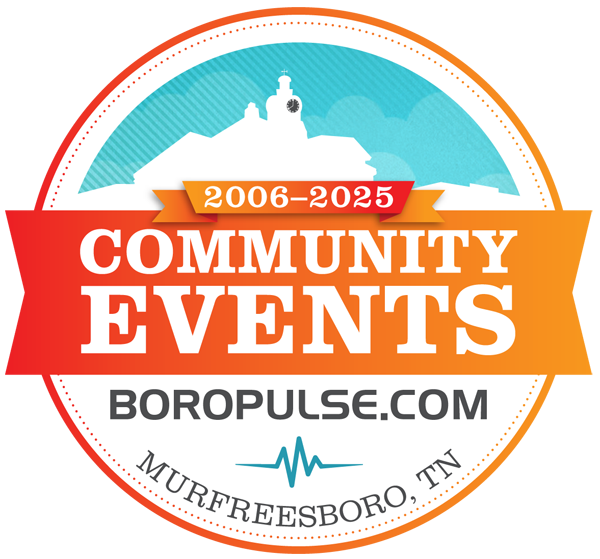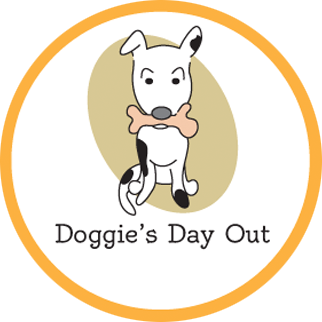It’s tough to find a well-made horror movie. In an era of sequels and reboots to horror films with high budgets and low standards, one who is looking for a legitimate thrill or genuine goosebumps from a film is less than satisfied. This has led more people into the mists of cyberspace cinema and the independent film circuits, looking for a compelling narrative with a good scare.
It is through this proverbial mist that the Pulse stumbled across the Daywalt Fear Factory: a production company whose specializes in horror. Thrilled by the works of the Fear Factory, the Pulse took a moment to pick the brain of the man who manufactures nightmares: Drew Daywalt.
How long have you been a filmmaker?
Daywalt: That’s a much more complex question than you might think. I grew up in the Midwest and as a little boy, I had no concept that movies were even made. They were just these mystical, beautiful things that existed. And I’d find them on late night TV, and sit enraptured from “Fade in” until the credits rolled. So I knew I wanted to have something to do with them, but didn’t believe there was an avenue for me to get from A to B. So I pursued what I did know, and that’s writing. In the end, I started pursuing journalism, then switched to screenwriting once I discovered film school at Emerson in Boston. So the short answer is, “Since I took the plunge and went to film school.”
What is it about being scared that makes you want to direct horror movies?
Daywalt: When I was about 7, I accidentally walked in on my older brothers watching The Exorcist, and it was right during the height of Reagan’s possession. I stood there frozen in fear, but unable to move my feet or look away. As a cinematic experience, I’ve never felt something so pure, so strong and so memorable. It was the first time I’d ever literally felt my body chemistry change just because of something I was watching on TV. That adrenaline coursing through my body changed the way I viewed film, even though I didn’t know it at the time. Once I was old enough to comprehend that people “made” that piece of art, I knew then that I wanted to make art that did that too.
For telling a scary story, what inspires you?
Daywalt: See, now that question is surprisingly simple. I just focus on what scares me. And at the end of the day, it’s the same things that scares everyone else. I think that the difference between horror story tellers and everyone else is that we allow our nightmares to flow through us after we wake up, instead of pushing them back down into our psyche. Most people work hard to forget the horrible imagery that plagues them from their own subconscious, whereas that’s fertile ground to grow the truly awful imagery for someone who peddles terror.
While being an avid fan of horror movies, do you plan on mostly focusing your future career on them? What other genres of film do you plan on making?
Daywalt: I like fantasy and sci fi as well and would gladly tell stories in those genres. I love building worlds. I’m a world builder. My favorite films and filmmakers are all about new worlds, strange experiences, things beyond the norm. I started out in Hollywood doing comedy and action adventure just because that’s where my path and opportunities took me. But when I took a moment and really thought about why I became a filmmaker and why I’m even here in L.A., I decided I didn’t want to just make a paycheck. I wanted to create the kind of art that inspired me as a child and a teenager. And that was horror and fantasy.
Your IMDB credits list your first feature film Stark Raving Mad, which appears to be a heist thriller with comedic elements. Tell us about your experiences on that film.
Daywalt: Stark Raving Mad was my directorial debut. I’d sold the script, which I’d written as well, to Newmarket films, which had just made Memento, and they teamed me up with Quentin Tarantino’s A Band Apart. I’d just come off of three years of cutting my teeth as a music video director and everyone wanted a hyper-stylized heist film with a fun cast of characters, so after casting Seann William Scott in the lead, we filmed in Vancouver and had a blast. Ultimately though, what I learned on my first film was that while I loved comedy and action, what I really wanted to be doing was genre stuff like horror and fantasy.
How did the idea for Daywalt Fear Factory, a production company that mainly focused on short films, come about?
Daywalt: When I made the transition from comedy to horror, I found myself with my agents and managers looking at me like I was crazy because they felt like it was a step down. And while the studios view the genre as a sort of creative ghetto, I love horror. And I thought it was just in need of good storytelling. But I found that even though I’d worked with Tony Scott and Jerry Bruckheimer and Lawrence Bender on action comedies, I found everyone in town saying, “Okay, so you wanna do horror. But are you scary?” So I got some people together and filmed some short films, just resume pieces really, and put them on YouTube, just to see if I could do it. And my first short film, Bedfellows, had 4 million hits in 2 weeks. So I was off to the races. And even though work started to come in, in horror, I still loved the short film format, so I kept making them. I still do actually. Between features and TV shows, my team and I will go do a short just because they’re fun. Better than a vacation for us after a long production, actually.
We’ve noticed that some of the films that you have made have a logo for “Fewdio.” Is that a separate production company, or something that has merely evolved in Daywalt Fear Factory?
Daywalt: Fewdio was a collective of fellow filmmakers who came together to dabble in horror shorts. I directed most of those films as well, but DFF came after and is just me and my team.
Do you find your short film work more liberating because of fewer constraints, or is there more pressure because you have a finite amount of time to tell a story and scare people?
Daywalt: I actually welcome the time constraints. It’s made me a better story teller and a more efficient visualist. Having to get broad concepts across very quickly in the short films has taught me to get to the point and not fuck around, and I’ve definitely taken that with me back to features and episodic TV. If there’s a short hand, use it.
Many people seem to look down up horror films as something of a low-brow form of art. Why do you think that is?
Daywalt: It’s because the genre has long been the hiding place of hacks. And they’ve hijacked a grand genre and replaced story telling with gore and tits & ass. Luckily internet porn has alleviated the pressure to show nudity for no reason in horror films, but we’re still saddled with gore hounds who’d rather throw a bucket of blood & shit on the camera than tell a good story. If you look at some of the really good horror films, none of them are about the gore. They’re about character and desire and story momentum. The same things that all good cinema is about. And that’s where I want to be. I want to tell good stories, and horror is a great place to do just that. I mean, what other genre can get an audience to show up purely on concept with no movie stars attached?
What successes have you enjoyed thus far being apart of the independent film festival circuits?
Daywalt: Luckily I’ve chosen a field where work is truly its own reward. So just the fact that I’m working regularly in a field where I get to be creative is an amazing thing. I love what I do, and even as a kid, my goal when I grew up was to live a life where work and play were indistinguishable. And I’ve done that, and that’s a great big comfy pillow to sleep on at night.
Tell us about your FEARnet blog, as well as your relationship to FEARnet.
Daywalt: Back in 2009, as Bedfellows was exploding on the internet and becoming a meme and a viral video, I was invited to the Magic Castle in Hollywood for a panel to speak on horror, the internet and the merging of the two. Also on the panel was Sean Redlitz, then editor of FEARnet. We hit it off and he asked me to blog based on what I’d said at the panel, and I’ve been writing down my weekly thoughts on horror and the philosophy of fear ever since then. Everyone at FEARnet has been incredibly supportive and kind to me. Lawrence Raffel, the current editor is a dear friend of mine. Peter Block, all those guys. They’re like family.
What advice would you like to see aspiring filmmakers take to heart?
Daywalt: The expression I was told all my life as a writer is that writers write. And it’s true. You need to be writing, journaling, investigating every day. And now, since the digital revolution in cameras, the same expression can be said of directors. Directors direct. Get a cheap camera, start filming. Of course it’s going to look like shit at first, but that’s the point. Keep going until it doesn’t. Keep going until you have a film that people arch an eyebrow at and say, “Wow. That’s good.” Then keep going until you have one that’s great. After that? Keep filming. As directors today, we have the luxury of being able to film all the time, any time, almost as cheaply as writers can write. So make films. Lots of them. If you don’t love what you’ve made, no big deal. Welcome to the club. Move on to the next thing.
What projects are you working on currently? Where are the future plans for Daywalt Fear Factory?
Daywalt: I’ve got two films going at the moment. One is The Passengers, which is the story of a young trucker and his wife and a load of haunted antiques they’ve been hired to transport across country. It’s got a sort of Shining feel to it. We get to watch this couple completely disintegrate when faced with overwhelmingly dark supernatural forces.
Then there’s The Hurting Man, which I’ve set up with Eric B. Fleischman and Larry Fessenden to produce, based on my script. We’re going to start filming in the fall after I’ve wrapped The Passengers. Hurting Man is about a police officer who responds to a 911 call from his own family only to discover they’ve been slaughtered. And every night thereafter he gets the same frenzied 911 call from his dead niece who died there. It’s a new kind of ghost story that I’m really excited to tell.
Where can fans of your work go to support you, or keep up with you online?
Daywalt: I’m @drewdaywalt on twitter and you can also find me on Facebook as well as YouTube at youtube.com/daywaltfearfactory.
















